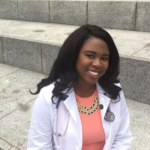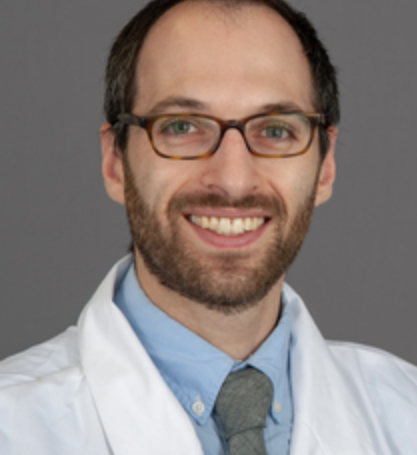Biomedical Leadership Fellowship (BLF)
Sponsored by Penn HealthX, Fajgenbaum Lab at Penn, the Castleman Disease Collaborative Network (CDCN), and Every Cure
Overview
The Fajgenbaum Lab at Penn, Castleman Disease Collaborative Network (CDCN), and Every Cure are looking for an entrepreneurial medical student to take a year-out between MS3 and MS4 to serve as the next Biomedical Leadership Fellow (BLF) to help advance in their shared goal to uncover the utility of existing drugs in every human disease, with the intent of translating therapies to patients with unmet medical needs. The Fellowship winner will work directly with Dr. David Fajgenbaum, MD, MBA, MSc, a physician-scientist at Penn and international leader in drug development and repurposing, on all aspects of their leadership, project management, overseeing strategic initiatives, from development through execution. Like the previous 6 Fellows who have made a transformative impact through this program, this year’s Fellow will work with expert researchers and physicians around the world and in the FDA, NIH, ARPA-H, pharmaceutical companies, tech companies like Google, foundations like the Chan Zuckerberg Initiative, Clinton Global Initiative, Audacious Project/TED, patients, and volunteers who all share a common goal of advancing treatments for devastating diseases. The skills gained from this fellowship are highly transferable to any career choice or field of specialty.
Responsibilities
The Biomedical Leadership Fellow, sponsored by Penn HealthX, CDCN, and Every Cure plays an essential role in helping to accelerate research for drug repurposing. We are looking for an MS3 to take a year out between 3rd and 4th year to work full time (and get paid $50,000 for the year) on the following combination of a) task execution, b) project management, c) strategic planning across divisions, and d) serving as a liaison with internal and external stakeholders.
- The BLF will serve as the “right hand person” and chief of staff that acts as an extension of David Fajgenbaum. Dr. Fajgenbaum is an Associate Professor of Medicine at UPenn, Associate Director of the Penn Orphan Disease Center, and Director and Principal Investigator of the Center for Cytokine Storm Treatment & Laboratory [CSTL] at UPenn, co-Founder & President of the CDCN, and co-Founder & President of Every Cure. The Biomedical Leadership Fellow will participate in meetings on behalf of Dr. Fajgenbaum, consult frequently with Dr. Fajgenbaum on strategic decisions and organizational priorities, and take on projects while Dr. Fajgenbaum is working on other projects.
- The BLF will work with Dr. Fajgenbaum and the CDCN leadership team to think strategically about future projects/initiatives as well as internal projects to improve efficiency. This strategic thinking and execution spans across major areas of engagement: Research, Physician Engagement, Patient Engagement, Fundraising, and Communications.
- Based on interests, experiences, and availability, the BLF may conduct translational research, clinical, or epidemiological research, or conduct research into ways to improve the translational research process for rare diseases.
Key characteristics for success
- Interest and passion in translating research into life-saving treatments
- Critical thinker and strong problem solver
- Serious attention to detail
- Highly conscientious and very organized
- Self-starter and interest in entrepreneurial pursuits
- Strong at finishing tasks
- Quick turn around time for email communications
- Is a Penn Med student
Objectives/goals
- Improve the speed with which projects go from concept to results by working with Dr. Fajgenbaum to improve organizational efficiency and by turning around tasks as quickly as possible
- Establish and execute a clear Project Management strategy
- Assist with all organizational operations, including executive-level advising and strategic planning
- Co-author at least one (hopefully more) article in a peer-reviewed journal
Funding
- $50,000 over 1 year for MS3s
- MS3s would be expected to take a year off from Penn Med to work full-time on this fellowship and research with Dr. Fajgenbaum
Application process
- Fill out the Biomedical Leadership Fellowship application
- Applications are accepted on a rolling basis from January 1, 2024 until September 30, 2024; early applications strongly preferred, and the winning BLF may be selected before the deadline
- Fajgenbaum will conduct interviews on a rolling basis
- Start date is flexible – anytime between January 2024-September 2024.
- Contact Amber Vas(vas@pennmedicine.upenn.edu) with questions
Learn more
- Learn more about the CDCN
Previous Biomedical Leadership Fellows:
 Alexis Phillips was the CDCN Biomedical Leadership Fellow (BLF) from 2020-2021. In her role as BLF, she participated in research projects investigating the involvement of mTOR-complex 2 in idiopathic multicentric Castleman disease (iMCD) and studying quantitative characteristics of iMCD lymph nodes. She also led the CDCN’s All in Movement (AIM) 2021 to crowdsource research ideas from the Castleman disease community and co-led phase 2 of the CORONA project to identify and prioritize promising COVID-19 drugs for investigation in randomized controlled trials. Alexis hopes to use the leadership and research skills she gained as BLF in a future career in academic medicine.
Alexis Phillips was the CDCN Biomedical Leadership Fellow (BLF) from 2020-2021. In her role as BLF, she participated in research projects investigating the involvement of mTOR-complex 2 in idiopathic multicentric Castleman disease (iMCD) and studying quantitative characteristics of iMCD lymph nodes. She also led the CDCN’s All in Movement (AIM) 2021 to crowdsource research ideas from the Castleman disease community and co-led phase 2 of the CORONA project to identify and prioritize promising COVID-19 drugs for investigation in randomized controlled trials. Alexis hopes to use the leadership and research skills she gained as BLF in a future career in academic medicine.

Sophia Parente was the CDCN Biomedical Leadership fellow from 2018-2020. She took time between her 3rd and 4th years of medical school at the Perelman School of Medicine (University of Pennsylvania) to help further the mission of the CDCN. Sophia spearheaded a collaborative partnership with the Chan Zuckerberg Initiative to expand the CDCN’s approach to research to other rare diseases, serving as the inspiration for the Rare As One Initiative. Previously, she earned her Bachelor of Music degree in Oboe Performance from the Shepherd School of Music at Rice University and later completed her premedical requirements at Johns Hopkins University.

Daniel J. Arenas, PhD is a Colombian immigrant, medical student, and researcher. He received a BS in physics. He received a Physics PhD in 2009 from University of Florida and subsequently became a faculty member at the University of North Florida. In 2016 he began medical school at the University of Pennsylvania and is currently on a research gap year working at the CDCN. He developed a new methodology for quantifying immunohistochemistry data and contributed to multiple publications including as first-author of a groundbreaking paper in Blood on mTORC1 signaling in iMCD.
 Dale Kobrin, MD was a Biomedical Leadership fellow for the CDCN from 2017-2018. Dale performed analyses that established cell types with increased mTORC1 activation in idiopathic multicentric Castleman disease, supporting use of an mTORC1 inhibitor in patients. Click here for a published paper. He graduated from the Perelman School of Medicine at the University of Pennsylvania and began his residency in internal medicine in July 2019.
Dale Kobrin, MD was a Biomedical Leadership fellow for the CDCN from 2017-2018. Dale performed analyses that established cell types with increased mTORC1 activation in idiopathic multicentric Castleman disease, supporting use of an mTORC1 inhibitor in patients. Click here for a published paper. He graduated from the Perelman School of Medicine at the University of Pennsylvania and began his residency in internal medicine in July 2019.
 Helen Partridge, MD was the CDCN’s first Biomedical Leadership fellow for the CDCN in 2016-2017. She led the effort to combine data to support the development of the first-ever treatment guidelines for idiopathic multicentric Castleman disease. She graduated from the Perelman School of Medicine at the University of Pennsylvania and began her residency in psychiatry in July 2018.
Helen Partridge, MD was the CDCN’s first Biomedical Leadership fellow for the CDCN in 2016-2017. She led the effort to combine data to support the development of the first-ever treatment guidelines for idiopathic multicentric Castleman disease. She graduated from the Perelman School of Medicine at the University of Pennsylvania and began her residency in psychiatry in July 2018.
